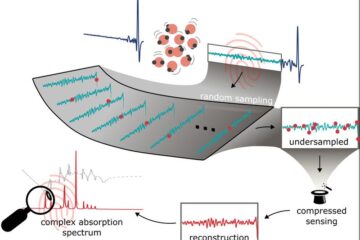New supercomputer sets record for highest performance in PC clusters, Japan

Named RICC (RIKEN Integrated Cluster of Clusters), the supercomputer is made up of four distinct computer clusters connected through InfiniBand interconnections, and has achieved a performance of 97.94 teraflops on the LINPACK benchmark.
RICC’s performance ranks it first among PC cluster systems in Japan and marks an increase in peak performance of 8.5 times over its predecessor, the RIKEN Super Combined Cluster (RSCC). In achieving this level of performance, RICC leverages a complex computing environment made up of four distinct sub-systems: a massively parallel cluster, a large memory capacity server, a multi-purpose parallel cluster, and a PC cluster with MD-GRAPE3—a supercomputing system specialized for molecular dynamics simulations. An advanced high-performance job scheduler developed at RIKEN coordinates hierarchical multi-level computing resources (cores, processors, computing nodes, PC cluster sub-systems and the whole system), minimizing job waiting time and maximizing job throughput.
By bringing together computing systems with different functions and purposes into a single supercomputer, RICC is able to cater to the needs of researchers from across a wide range of research fields. Researchers developing software for RIKEN’s Next-Generation Supercomputer, scheduled for completion in 2012, can use RICC to test application programs specifically designed for a massively parallel processing environment. The system will also be capable of processing large volumes of experimental data from advanced DNA sequencers, accelerators and RIKEN’s X-ray Free Electron Laser (XFEL). In addition, RICC is equipped with a programmable accelerator (GPGPU) that supplies user applications with more powerful computing capability. From the users’ perspective, RICC is also very convenient to use, with a front-end system that provides accessibility via an SSH-enabled terminal, a web-based service and by mobile phone.
As the country’s most powerful supercomputing system, RICC promises to accelerate ongoing research as well as open doors to new research possibilities. Routine operation of RICC, which started test operations on August 3, will commence from October 1.
Media Contact
All latest news from the category: Information Technology
Here you can find a summary of innovations in the fields of information and data processing and up-to-date developments on IT equipment and hardware.
This area covers topics such as IT services, IT architectures, IT management and telecommunications.
Newest articles

How evolution has optimised the magnetic sensor in birds
The magnetic sense of migratory birds is probably based on the protein cryptochrome 4, and a genetic study has now provided further support for this theory. A team of researchers…

Molecular Fingerprint Beyond the Nyquist Frequency
Ultrafast laser spectroscopy allows the ascertainment of dynamics over extremely short time scales, making it a very useful tool in many scientific and industrial applications. A major disadvantage is the…

High-energy-density aqueous battery based on halogen multi-electron transfer
Traditional non-aqueous lithium-ion batteries have a high energy density, but their safety is compromised due to the flammable organic electrolytes they utilize. Aqueous batteries use water as the solvent for…





















